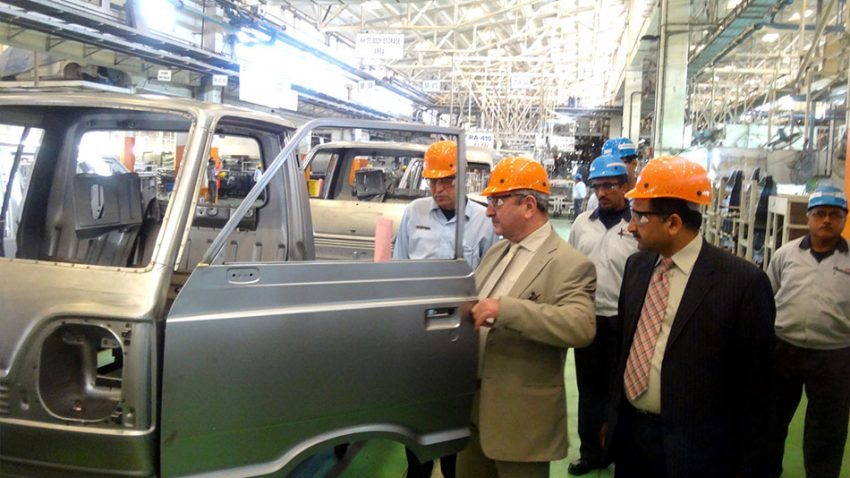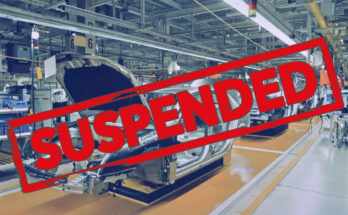Pakistan introduced its first-ever Auto Policy in 2016, the aim of which was to break the monopoly of 3 Japanese automakers in the market, generate healthy competition between players, shorten the delivery period, eliminate own/ premium, increase localization, bring down car prices and improve the quality of products offered to the customers.
Various automakers stepped into the business as a result of Auto Policy 2016-21, however majority of newcomers preferred dodging the competition while never trying to compete against the existing players by launching a product for volume buyers, and remained focused on offering premium priced products targeted towards those with strong purchase power.
Related: The Deceptive Marketing Practices
Automakers don’t find it right to introduce products which target the mass market buyers, perhaps from a business point of view, profit margins on smaller and medium sized hatchbacks & sedans are thin and require more effort to compete. However like they say since rich are becoming richer, most of the products that have been introduced so far as well as those currently in the pipeline are offered for those with deep pockets. In most cases these expensive 4-wheelers actually cost more than a residential property.

Some say the Musharraf era without an auto policy had much more to offer for mass market buyers. Chevrolet, Hyundai, Kia, Adam, Fiat, Mitsubishi, Proton, Nissan, Chery, Geely, Gonow were all offering cars that were well within the reach of masses and would directly compete against the existing options.
Related: The Sufferings of “Booking Open”… Is Pakistani Auto Consumer Protected?
Fast forward 2022, auto consumers of Pakistan continue to suffer in various forms such as super delayed deliveries, frequent price revisions, premium/ on money and lack of choices among affordable cars in the market. However in order to deal with this, government introduced new Auto Industry Development and Export Policy (AIDEP 2021-26) in December 2021 with several clauses aiming to bolster the development of Pakistani automotive industry. Special attention has been given towards localization of vehicles, parts, protection of consumers, and incorporation of technology and safety, such as the implementation of WP29 safety standards. However the most significant aspect was the formulation of Auto Sector Monitoring Committee which will be responsible for the following actions:
- Addressing consumer grievances, including delayed deliveries and ‘On Money’
- Safeguarding consumers on quality issues
- Implementation of WP-29 safety regulations
- Monitor minimum initial payment which must not exceed 20% of the price
- In case of non-compliance with policy, the committee will have the right to stop the incentives granted to the company
Related: 1,290 Complaints Related to Auto Sector Received by EDB
First meeting of the committee will take place on the 8th of March to discuss various issues as the Engineering Development Board (EDB) has reportedly received more than 1,290 complaints related to the local auto sector. In addition to discussing complaints regarding late deliveries, price increase, quality issues and reimbursement of KIBOR + 3% etc, the committee will also discuss implementation of WP29 standards as well as budget proposals for FY2022-23.

Keeping in view the benefits of auto consumers of Pakistan, we believe the following clauses should be included in the AIDEP 2021-26 framework.
No Price Increase Impact
No price increase impact should be transferred to customers who have made full payment to automakers for delivery on a committed date. If a company fails to deliver car in promised time, it should bear the cost increase impact, else should not accept amount in the first place.
Presence in Multiple Segments
Automakers should have presence in every segment to encourage competition. This would end oligopoly in the auto market & generate true competition. Imagine Toyota & Honda offering hatchbacks and Suzuki competing in the sedan or MPV segment. This can also be accomplished by creating price-wise slabs if an automaker hasn’t got a product in a particular vehicle segment. For example 3 price segments– one below Rs 2 million, then between Rs 2.1 to 4 million and above 4 million. Every automaker must have a product in at least two of the price segments will do enough to generate the required competition.
Testing Bodies
Testing bodies should be there to make sure safety systems installed are fully functional. This will eliminate cases where airbags are installed in the car but were found non-functional in event of a collision.
Conditional import of JDMs
The import of (used) JDMs has always been a debatable subject but we strongly believe the presence of these in the market has always kept the prices of locally assembled cars in check. So conditional import of JDMs, or in a certain quota should be allowed.
Incentives Linked to Higher Localization
Special incentives should be offered to automakers achieving higher localization. This can also be something in line with the PLI Scheme in India. Automakers achieving higher localization will benefit compared to those with little or no localization or those heavily relying on CBU/ CKD imports.
Related: How Morocco Become a Leading Automobile Production Hub
The formation of committee and hearings related to the genuine problems of auto consumers is indeed a step in right direction. However it will only become fruitful when implementations will be made in true means. Want to add some suggestions, use the comment section below to let your voices heard.

A computer animation professional with over 23 years of industry experience having served in leading organizations, TV channels & production facilities in Pakistan. An avid car enthusiast and petrolhead with an affection to deliver quality content to help shape opinions. Formerly written for PakWheels as well as major publications including Dawn. Founder of CarSpiritPK.com




